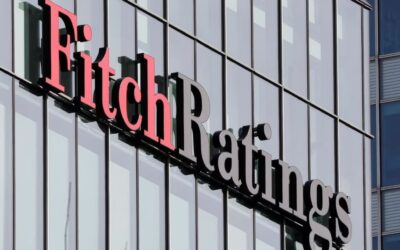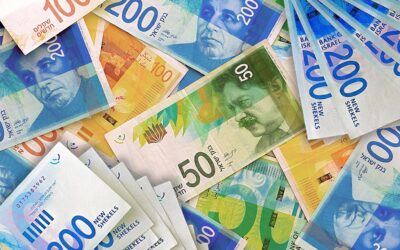In the ever-shifting landscape of economic decision-making, the Bank of Israel has found itself at a crossroads in the wake of recent developments. Just two weeks ago, the expectation was that the central bank would increase interest rates by a quarter of a percent, bringing them to 5%. The reasoning behind this move was rooted in the August price index, which pointed at inflation not aligning with the bank’s expectations. The aim of this rate hike was to curb rising prices, working towards the bank’s inflation target of 3%.
However, the outbreak of conflict in the south has thrown these predictions into disarray. As the war’s potential economic fallout looms large, many economists began advocating for interest rate cuts, ranging from 0.25% to 0.75%. This was seen as a way to boost the local economy, which was already feeling the negative impact of hight interest rates, particularly in terms of declining demand and consumption.
Deputy Governor of the Bank of Israel, Andrew Abir, met with financial forecasters last Tuesday and hinted at the bank’s reluctance to significantly lower interest rates. The bank’s official statement emphasized their focus on market stability and ensuring certainty for the economy, with the intent of preventing further devaluation of the shekel.
The bank’s earlier decision to sell foreign currency in the market to the tune of $30 billions was aimed at maintaining market liquidity amidst the ongoing crisis. Their primary concern is the shekel’s devaluation against the dollar, which could lead to increased inflation.

Israel’s central bank chief Amir Yaron (Reuters/Steven Scheer)
Lowering interest rates, however, contradicts the bank’s intervention in the foreign exchange market. While lowering rates might support the economy, it could also reduce the appeal of investing in local markets, potentially leading to further devaluation of the shekel as funds shift elsewhere.
Despite these challenges, there are voices in the market suggesting that the Bank of Israel may still opt for a rate cut in the near future to stimulate the economy. Given the considerable uncertainty associated with times of conflict, the bank will have to carefully weigh the risks.
In response to the crisis, bond yields in Israel have risen to compensate for increased risks. The risk premium on Israeli government bonds has surged since the conflict’s onset, leading to higher yields. The rise in yields reflects concerns over the Israeli economy, potential credit rating downgrades, and inflation triggered by a weaker shekel.
The Tel-Gov Shekel 10+ index, comprising government bond series has surged to an all-time high, indicating an implied return to maturity of 4.7%. This represents a notable increase from the 4.5% level just prior to the events on October 7 and the sub-4% rate noted in late July.
The global situation also plays a role in the bond market, with US bond yields soaring to 4.91%, reaching a 16-year high. These increases are linked to a strong labor market and expectations of higher future interest rates, with investors adjusting their portfolios in response.
The Bank of Israel is navigating uncharted territory as it strives to strike a balance between stabilizing the economy and preventing further devaluation of the shekel in these uncertain times. The upcoming interest rate decision will be crucial in shaping the country’s economic path amid ongoing conflict and global economic trends.
Main article photo: The Bank of Israel building Jerusalem. (REUTERS/Ronen Zvulun)





0 Comments